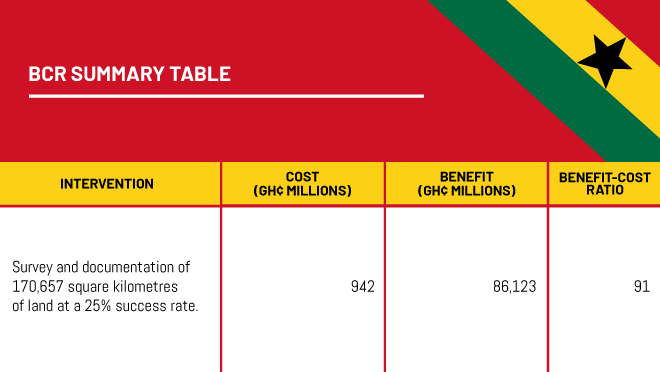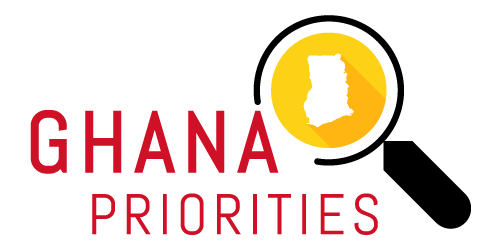Ghana Priorities: Land Titles
Technical Report
The Problem
- Poverty remains a problem in Ghana. There is an overall reduction in national poverty over the last 3 decades, but this masks the persistent spatial concentration of poverty and high inequality. Efficient access to land for formal economic activity can help reduce poverty drastically. However, access to land in Ghana remains a challenge to the poor and investors as well as local authorities for development. Ghana faces a particularly huge challenge with land tenure databases especially as land titling is also very low.
- It is estimated that the majority of land held in Ghana (about 80%) is held under customary tenure system. Most land parcels are largely undocumented, unregistered formally, and consequently untitled. In addition, there is also a limited or poor and outdated national database on land.
- Land for economic use is therefore a structural challenge and an impediment to economic development and poverty reduction.
Intervention - Land Titling
Overview
The program involves surveying and documentation of 170,657 square kilometers of land representing the parcel of customary lands in Ghana and building a comprehensive and automated national base land map. The intervention has six segments:
- Updating and modernizing the national base map
- Rehabilitating the Continuously Operating Referencing Station (CORS) network
- Mapping, survey and demarcation of customary land ownership
- Digitization of documents, and automation of the registration process
- Sensitization
- Legal framework for adjudication
Implementation Considerations
•The program will be implemented by the Lands Commission of Ghana, Office of the Administrator of Stool Lands, Geological Survey Department all under the Ministry of Lands and Natural Resources and private land surveyors.
•The implementation also includes sensitization workshops to be held nationwide as well as comprehensive legal systems for adjudication.
Costs and Benefits
Costs
- If the project is implemented successfully the total cost is estimated at GHS 1,658 million of which 64% accounts for the survey cost. However due to the challenges in successful implementation of land title reforms, there is a non-trivial risk of implementation failure. If the project is not implemented successfully, then we estimate the cost would be GHS 700 million – lower than for a successful implementation, but with no benefits.
Benefits
- The total benefits are estimated to be GHS 344,492 million if the project is implemented successfully. These benefits represent a number of outcomes including improved access to credit, reduced land transaction costs, reduced social upheavals and conflicts, and increased investment certainty. These benefits manifest as a 25% increase in value of rural customary owned land as a result of the reforms and titling. The expected benefits, assuming a 25% probability of success is GHS 86,123 million.


